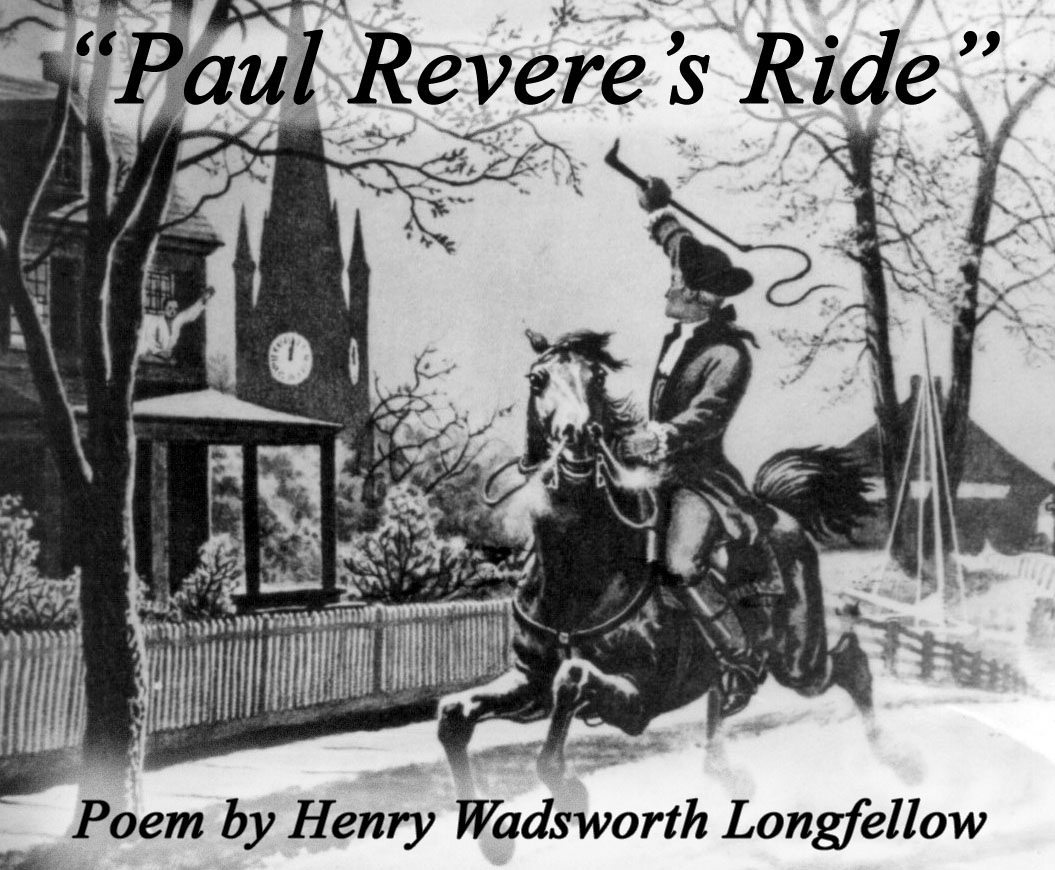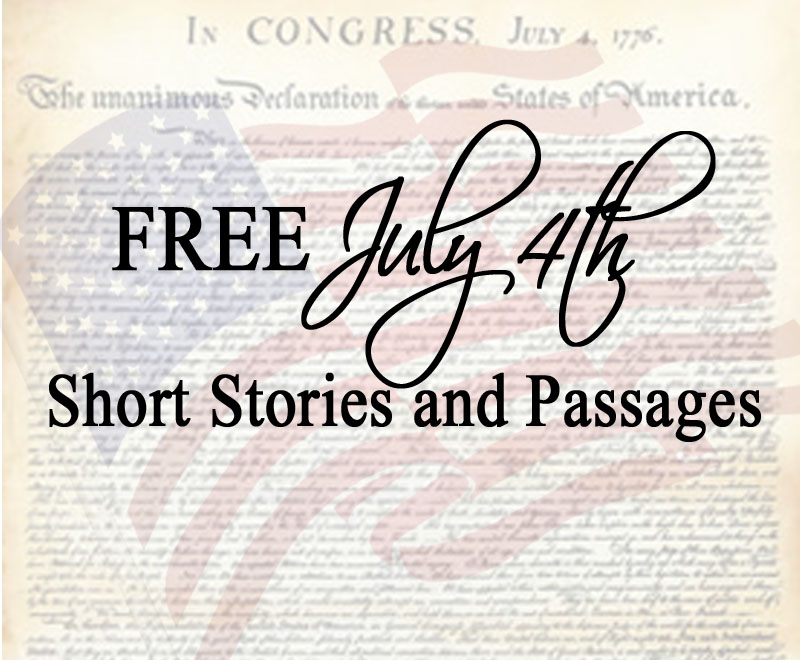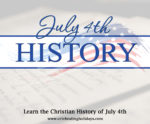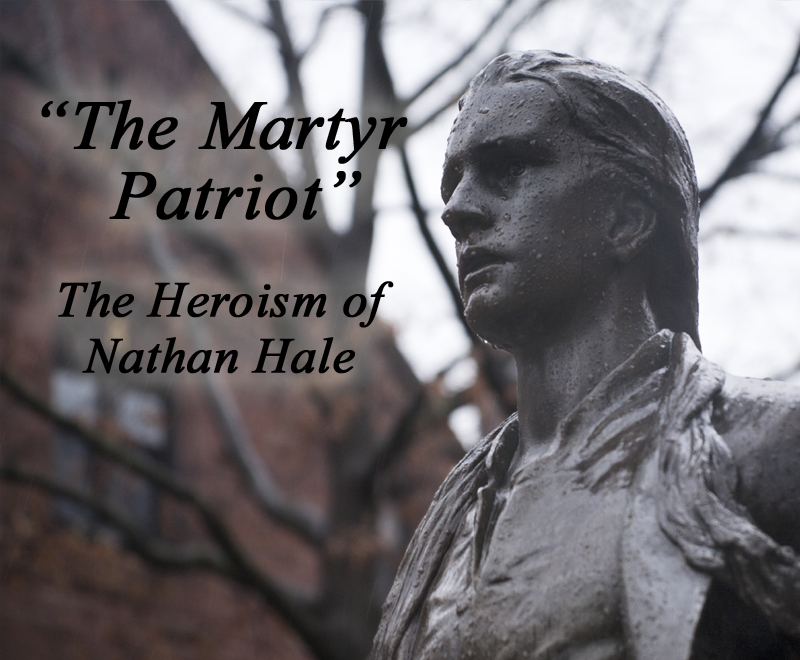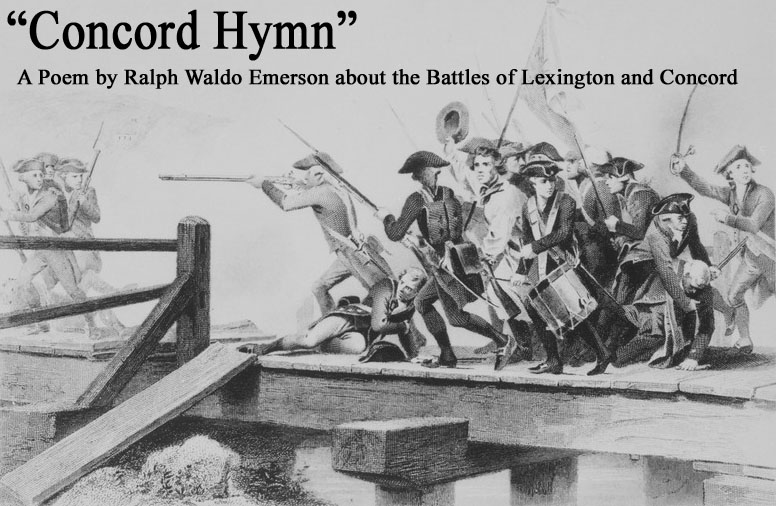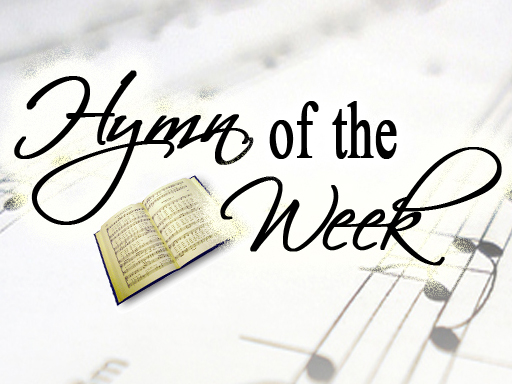“A Race for Liberty”
The True Story of Paul Revere’s Midnight Ride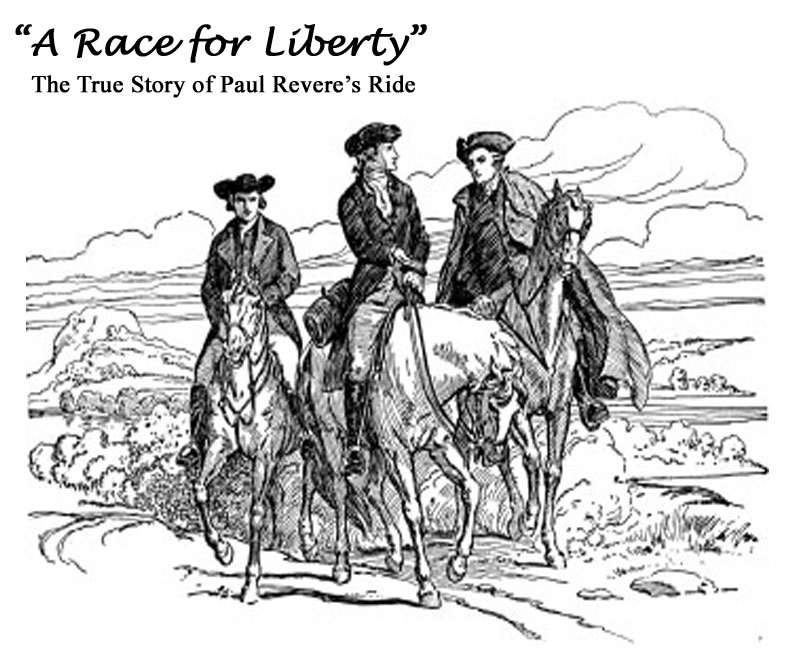
By George D. Varney
The Background
This short story gives the true story of Paul Revere’s famous ride to Concord. Author George Varney makes the following note:
“It is generally believed that Paul Revere personally warned Concord, a notion derived from Longfellow’s poem, Paul Revere’s Ride, wherein is some poetic license. The authorities for the present story are Revere and Dawes themselves. Revere’s account of the ride is given in a communication from him to the Massachusetts Historical Society in 1798.”
Since Longfellow’s poem is included on this site, I thought I should also include a more accurate account of the events below. This short story can be found in the book Stories of Patriotism (1918), edited by Norma Helen Deming and Katharine Isabel Bemis. For more information on the Battles at Lexington and Concord see our History Page.
The Story
Near midnight of April 18,1775, a boat with muffled oars was rowed softly but swiftly across the Charles River from near Copp’s Hill, in the northern peninsula, to the opposite shore, not far from the foot of Bunker (or Breed’s) Hill in Charlestown — also a peninsula. They passed so near to a British man-of-war lying at anchor in the stream that they could hear the rigging rattle as the great vessel rocked on the slow waves, and could hear the voices of the watch on the deck. But the boat reached the shore without being discovered; and a young man who had sat in the bow, silent and watchful, sprang out promptly. He was Paul Revere — familiar to most American readers as the man who warned the people on the road to Lexington of the approach of the British troops. His friends in Charlestown had seen two lights in the belfry of the Old North Church in Boston, which was the signal agreed upon to show that the British were crossing the road to Cambridge.
Deacon Larkin’s black horse was ready for the messenger of warning, and in a few minutes Paul Revere was riding along the road on the southwest side of the Charlestown hills to the Neck. Here he took the left-hand road, leading through Cambridge; but the British had already landed. Only a short distance along this road grew some great shady trees; and out from their shadow two armed redcoats spurred on their horses to meet Revere. Back on his course quickly turned the young patriot, closely followed by his foes. The swifter one, to shorten the distance, attempted to ride across a space from which clay had been dug out for brick-making. The water of the melting snows and ice had soaked the clay, making a deep mire. When the horse had floundered out of this, Revere had got well in advance up the northerly or righthand road, which led through Medford — this route being longer by a mile.
Revere reached Lexington without further reverse, having roused and warned the sleepy families along the way. At a few minutes past twelve o’clock (the morning of the fateful April 19th) Revere rode along between the meeting-house and Buckman’s tavern, northward past the Green, to the house of Rev. Jonas Clark, where the patriots Hancock and Adams were staying. Here, for half an hour, rider and horse took a rest. Then arrived another messenger, William Dawes, who had come all the way by land, through West Roxbury and Brookline. The two started off together to warn the people at Concord, six miles farther on.
They had gone but a short distance when another horseman came galloping up behind them. He proved to be Dr. Prescott, of Concord, who had been spending a social evening with some friends in Lexington. He was truly, as Revere described him, “A high Son of Liberty”; and he lent his assistance in awaking the residents along the road and giving the alarm.
About halfway between the two villages, at a shady turn of the road, Revere, who was in advance of the others, was brought to a stand by a line of mounted redcoats extending across the way. He took the avenue of escape — for he had not time to turn his horse entirely about — and rode through an open gateway just by him, into a field. After him went two or more of the redcoats.
Next Dawes and Prescott came up, were met by others of the British, and turned into the field, pursued by some of the enemy.
Revere had ridden toward the woods back of the field, with the intention of leaving his horse and escaping through the woods and fields on foot to Concord; but out from the shade of the trees there rushed on him two other mounted redcoats, who made him a prisoner.
Nearly eight hundred British regulars were at this moment on the march, and Concord, with its valuable military supplies, slept on, unconscious that before the sun had reached meridian their village was to swarm with redcoats bent on destruction.
Dr. Prescott, perceiving several redcoated horsemen near the woods, took his course at a gallop through the middle of the field. He knew both his horse and locality well, and led his pursuers a short but lively chase. Having distanced them a little, he wheeled his horse toward the road, and spurred him up to the wall, over which he made a clear leap to the highway.
The discomfited redcoats turned back without attempting to imitate the break-neck feat.
While the British were securing Revere and chasing Dr. Prescott, Dawes had turned about and ridden back the way they had come; but he, too, was pursued by a pair of mounted soldiers. His horse was quite fagged with his long journey, and the fresh horses of his pursuers were almost up with him in the first quarter-mile. Near the road at this point stood a farmhouse, all dark and silent, and Dawes rode into its shadow and close up to the porch at full speed.
As his horse stopped short, Dawes slapped his hand down on his leather breeches with a resounding thwack, and called out as if to persons inside:
“Halloo, boys! I’ve got two of ’em.”
The redcoats were struck with the idea that a lot of armed Yankees would the next instant rush out upon them, and they whirled their horses about and galloped away at their best speed.
As soon as they were out of sight Dawes resumed his course back toward Lexington. The next morning the family found a big silver watch on the ground. Dawes had stopped so suddenly that it had been flung from his pocket. He had felt the movement, but in the excitement of the moment gave it no thought; his property was restored to him later.
As soon as possible, pursuit of Dr. Prescott was made along the road, but it was a blank failure. The ten or twelve redcoats soon started back toward Lexington with their solitary prisoner, Paul Revere. They were abusive at first, but he was so fearless, and told them such alarming stories of the rallying of the minute-men all along the route, that they were much frightened; and when they came near Lexington and heare the bells ringing and the drums beating, they gave Revere no attention at all, and he slipped away from them without their making any attempt to restrain him, so anxious were they now to make their own escape.
This page was created by:

Back to main July 4th Stories page.
We welcome your ideas! If you have suggestions on how to improve this page, please contact us.
You may freely use this content if you cite the source and/or link back to this page.
